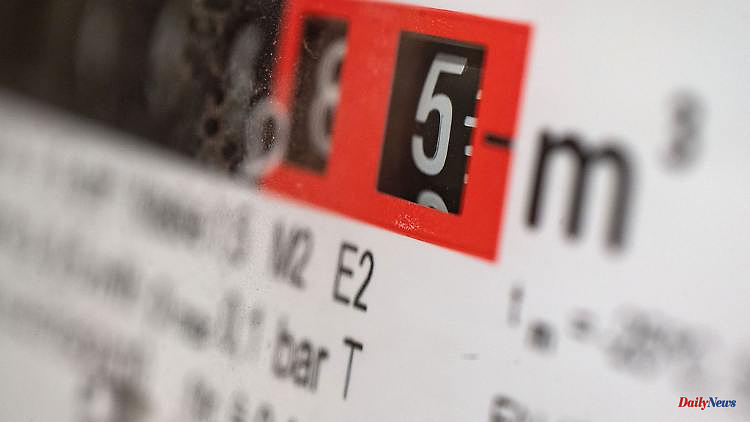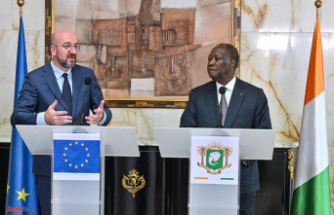Germany's dependence on Russian gas also has consequences in the southwest. Municipalities and churches are preparing to save energy. Autumn is also likely to be cooler and darker indoors this year.
Stuttgart (dpa/lsw) - Municipalities and churches in the state want to significantly reduce their energy requirements due to the impending gas shortage in autumn and winter. In the Karlsruhe administration, air conditioning and ventilation systems as well as hot water should be switched off where possible. The interior temperature should be reduced by two degrees and only protect against frost in corridors and adjoining rooms, as a spokesman said. It is also being examined to shorten the heating period. The lighting in public buildings should also be reduced to a minimum, and with a view to safety, consideration is being given to switching off certain traffic lights at night.
In Stuttgart, the city is saving energy in the pools. Since July 1st, the pool water in the outdoor pools has only been heated by solar energy. As a result, there is no longer a guaranteed water temperature, said a spokesman for the city. The state capital sees further savings potential in lighting. "We are currently very seriously considering switching off the outdoor lighting in municipal buildings such as the town hall or the city library and want to coordinate this with the churches, insofar as churches are illuminated," said Mayor Frank Nopper (CDU). As in Karlsruhe, it is still being determined how much energy the city can save with this.
The city of Tübingen relies primarily on the massive expansion of renewable energy and the use of heat pumps and pellet heating. According to a spokeswoman, lighting and heating should be reduced to the permissible minimum. In addition, all systems are currently being checked and optimally adjusted.
No more hot water in the administration buildings of the city of Konstanz. According to a spokeswoman, further measures are planned, for example depending on the German gas storage facility. If the storage tanks cannot be filled sufficiently for the winter, the thermal baths and the sauna as well as the indoor pool on the Seerhein must close, as the municipal council has decided. In addition, the municipal heating systems should only provide heat from October this year - up to a maximum of 19 degrees.
The four Christian churches in the state also see savings potential and have already exchanged views on this, as a spokeswoman for the Diocese of Rottenburg-Stuttgart announced. Bishop Gebhard Fürst called on those responsible in the parishes to actively prepare for the coming heating season and to plan how energy consumption can be reduced. "For us as a church, it goes without saying that we should contribute to the efforts of society as a whole to save energy in order to ensure the supply of gas and other energy to central areas of the critical infrastructure," said Bishop Fürst.
On Monday, the Archdiocese of Freiburg provided the parishes with a handout with tips on how to save energy. It explains, for example, how the heating temperature can be reduced without risking frost damage and how churchgoers can be prepared for low temperatures in the churches.
So-called winter churches are planned for the Evangelical Church in Baden and in Württemberg. To save energy, the service should take place in the parish hall and not in the church. The church is then not or only basic heated, as announced by the regional church in Baden. In addition, the Württemberg regional church advises making greater use of digital services, for example for church services.
Lower external lighting in the churches should also help to save energy, albeit with a significantly lower savings potential. The regional churches would also like to tackle longer-term measures such as the renovation of buildings due to the gas crisis even more.












